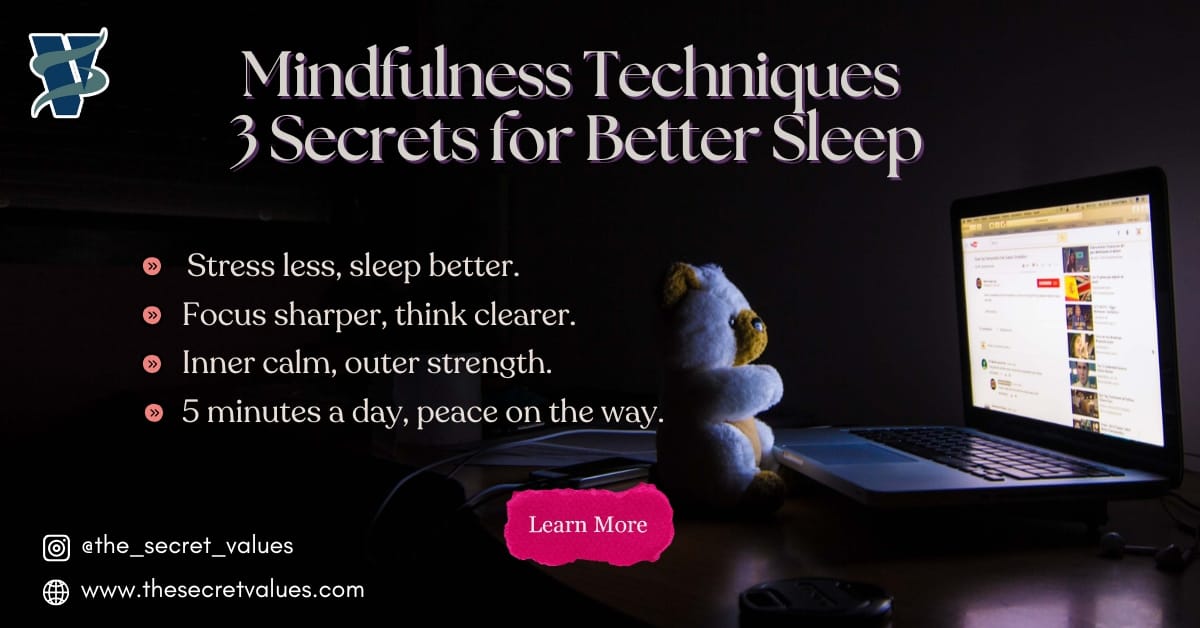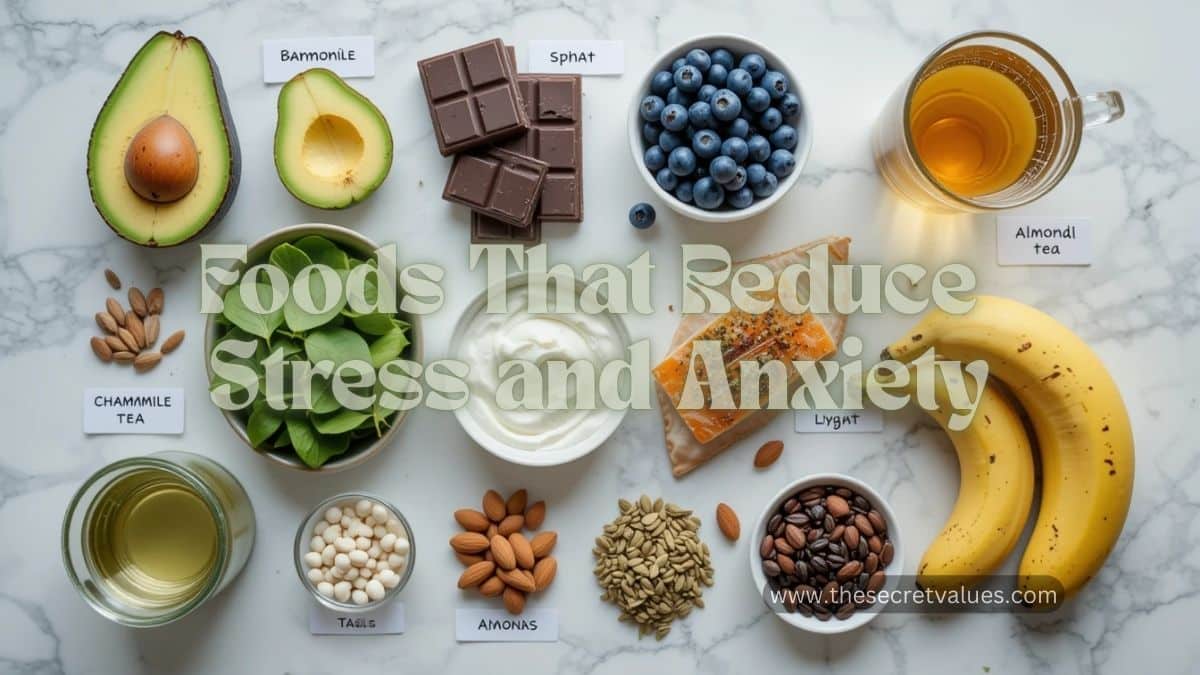A restful night’s sleep can feel elusive in today’s fast-paced world. It may change your winding down and sleep preparation by including mindfulness techniques in your routine. Let’s explore three powerful secrets to enhance your sleep and tackle stress, starting with meditation and breathing exercises.
The Role of Mindfulness in Sleep
Mindfulness is the practice of being fully present in the moment, which calms the mind and reduces stress. Lack of quality sleep often stems from stress or an overactive mind. By adopting mindfulness techniques, you can establish a mental state conducive to rest.
1 Practice Mindful Breathing
Mindful breathing is one of the simplest but most effective techniques for promoting relaxation. It involves focusing on your breath, a practice that soothes the nervous system and prepares your body for sleep.
How to Do It:
- Sit or lie in a comfortable position.
- Close your eyes and inhale deeply through your nose for four seconds.
- Hold your breath for four seconds.
- End on expiration for six seconds out.
Repeating this exercise for five to ten minutes can reduce stress and quiet your thoughts—no wonder it’s often considered one of the top Breathing Exercises to Reduce Stress.
2 Use Guided Meditation for Stress Relief
Meditation is a cornerstone of mindfulness and a proven technique for alleviating stress, which is often the root cause of insomnia. Led meditations explicitly focus your thoughts and help your mind loosen off.
How to Get Started:
- Find a quiet, dimly lit space.
- Use a meditation app or video focused on relaxation and sleep, such as Calm or Headspace.
- Follow the guide’s instructions to focus on your breath, release negativity, and embrace calm.
Regularly practising meditation for stress relief will help create a calming bedtime routine, preparing you for consistent, quality sleep.
3 Cultivate Gratitude Through Journaling
A cluttered mind can sabotage one’s ability to relax. Journaling is a mindfulness technique that encourages one to process and release thoughts that may keep one awake.
Steps to Try Gratitude Journaling:
- Before bedtime, write down three things you are grateful for that day.
- Reflect on moments, people, or experiences that brought positivity into your life.
This practice shifts your mindset to focus on the positive, fostering a sense of peace that helps you fall asleep faster.
Additional Benefits of Mindfulness Techniques
Practising mindfulness helps improve sleep and enhances overall health and well-being. These techniques can:
- Enhance mental clarity.
- Lower cortisol levels (the stress hormone).
- Strengthen your emotional resilience.
By tackling the underlying causes of stress, such as anxiety and mental clutter, mindfulness becomes a holistic tool for better sleep and improved quality of life.
Final Thoughts
The secrets to better sleep aren’t locked away in medications or gadgets—they lie in the ancient art of mindfulness. You can embrace a healthier, more restorative sleep routine by practising mindfulness techniques, such as mindful breathing, guided meditation for stress relief, and gratitude journaling.
Take the first step tonight: close your eyes, breathe deeply, and let mindfulness guide you into a world of tranquillity and rest.
Frequently Asked Questions
Q: How long should I practice mindfulness techniques before bed?
A: Start with 10-15 minutes per night and increase based on how comfortable you get with it.
Q: Can mindfulness help with chronic insomnia?
A: Indeed, mindfulness techniques address the root cause of stress and anxiety that is often linked to insomnia, making it an effective long-term solution.
Q: What if I struggle to focus during meditation?
A: That’s normal! Start with guided meditations and gradually transition to independent practice as you build your focus.
By integrating these mindfulness techniques into your nightly routine, you’ll be well on your way to discovering the sleep you’ve always dreamed of. Sweet dreams!







